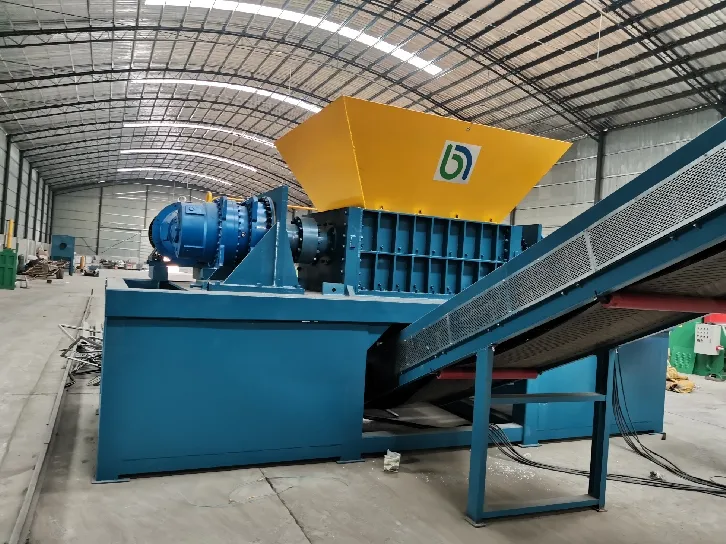

نوفمبر . 29, 2024 15:33 Back to list
How Do You Recycle Old Electronics?
In today’s fast-paced technological landscape, new gadgets and devices emerge at an astonishing rate. As we strive to keep up with the latest technology, many of us find ourselves faced with the accumulation of old electronics that no longer serve a purpose. Whether it’s an outdated smartphone, a broken laptop, or a dusty television, e-waste, or electronic waste, poses a significant environmental challenge. However, recycling old electronics can mitigate harm and promote sustainability. This article explores the importance of recycling e-waste, how to properly recycle it, and the benefits it brings.
The Importance of E-Waste Recycling
Electronic devices contain a variety of materials, some of which can be harmful if not disposed of properly. Heavy metals such as lead, mercury, and cadmium can leach into the soil and groundwater, causing environmental and health issues. Moreover, many electronic devices contain precious metals like gold and silver, which can be recovered and reused. By recycling these devices, we not only prevent harmful substances from polluting our environment but also conserve natural resources by recovering valuable materials.
The scale of e-waste is staggering. According to the Global E-Waste Monitor, over 53 million metric tons of e-waste were generated globally in 2019, and this number is expected to increase each year. Unfortunately, only about 20% of e-waste is recycled properly. This leaves a significant amount of electronic waste in landfills, where it can take hundreds of years to decompose and proliferate harmful materials into the ecosystem.
How to Recycle Old Electronics
1. Identify What Can Be Recycled Not all electronics can be recycled the same way. Common recyclable items include smartphones, tablets, laptops, desktops, televisions, printers, and gaming consoles. Always check local regulations to understand what items are accepted for recycling.
2. Backup and Erase Data Before recycling, it’s crucial to secure personal information. Ensure you back up any important data from your devices and then perform a factory reset or wipe the hard drive to remove any sensitive information.

3. Find a Recycling Center Many organizations and local government agencies offer e-waste recycling programs. You can often find certified recycling centers that specialize in processing electronic waste. Some retailers, like Best Buy and Staples, also have in-store recycling options. Make sure the recycling facility is certified to handle e-waste, as their processes will comply with environmental regulations.
4. Donate or Sell Usable Electronics If your old electronics are still in working condition, consider donating them to charities, schools, or local community centers. There are also platforms such as eBay or Craigslist where you can sell used devices. This not only extends the lifecycle of the product but also helps someone in need.
5. Participate in E-Waste Collection Events Many communities hold e-waste collection events, especially during Earth Day or environmental awareness months. Participating in these events is a great way to responsibly dispose of your old electronics while also educating yourself and others about the importance of recycling.
6. Manufacturer Take-Back Programs Some manufacturers offer take-back programs where they will accept old devices for recycling. Check the manufacturer’s website for information on how to return your old electronics.
The Benefits of Recycling E-Waste
Recycling old electronics has multiple benefits that extend beyond environmental preservation. It promotes the circular economy by reducing the demand for new raw materials and minimizes the ecological footprint associated with the production of new devices. Furthermore, recycling creates jobs in the green industry and fosters innovation in sustainable practices.
In conclusion, as technology continues to evolve, so does the issue of electronic waste. Recycling old electronics not only protects our environment but also conserves valuable resources and promotes sustainability. By following the steps outlined above, individuals can play a vital role in addressing the e-waste crisis. Always remember it’s not just about getting rid of old devices; it’s about ensuring they are disposed of responsibly for the benefit of our planet and future generations. Let's all commit to making responsible choices that reflect our dedication to a healthier, more sustainable world.
Latest news
The Future of Metal Recycling: Revolutionizing Waste Management
NewsMay.14,2025
Optimizing Waste with Recycling Lines
NewsMay.14,2025
Municipal Solid Waste Sorting Line: Revolutionizing Waste Management
NewsMay.14,2025
Metal Shredders: Essential Tools for Efficient Recycling
NewsMay.14,2025
Maximize Your Profits with a Copper Wire Granulator
NewsMay.14,2025
Home Metal Shredder: A Smart Choice for Your Home Recycling Needs
NewsMay.14,2025